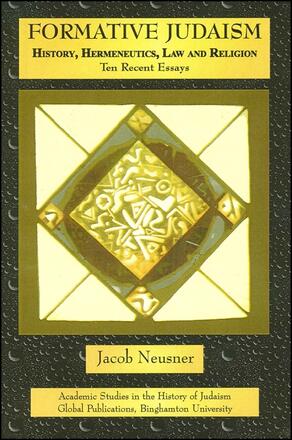
Formative Judaism
History, Hermeneutics, Law, and Religion: Ten Recent Essays
Examines the history, philosophy and hermeneutics, and law and literature of formative Judaism.
Description
Formative Judaism, represented by the writing of the ancient Judaic sages from the first through the sixth centuries of the Common Era, defines the history of Judaism from late antiquity to our own times, because its principal documents govern the definition of the law and theology of Judaic religious systems before modern times and profoundly influence those that have taken shape since the eighteenth century. Those writings therefore form the one point to which all subsequent Judaisms refer back either as authoritative, for most Judaic systems, or as defining point for differentiation, for the schismatic (heretical) Judaic systems over that long period of time. The writings are the holy scriptures of ancient Israel together with the Mishniah, Tosefta, Talmud, and score of Midrash-compilations that authoritatively interpret those scriptures and that particular to Rabbinic Judaism
In a variety of scholarly projects, beginning in 1960 and continuing to the present, I have conducted studies of a historical, philosophical, theological, legal, and literary character of that Judaism. As these have accumulated, in many volumes, I have summarized the principal findings for colleagues in other fields in the study of Judaism, not to mention those in other fields besides the academic study of religion. From time to time I have collected the summaries—systematic essays that reprise a variety of monographs—and have published them. I mean in this way to engage in a process of haute vulgarisation for those whose interests intersect with mine but who focus on other subjects. Since in the nature of things colleagues cannot read the rather lengthy research reports that form the foundations for my systematic conclusions, these essays afford access to what I conceive to be the main points.
The present collection covers three general areas of learning: (1) history, (2) philosophy and hermeneutics, and (3) law and literature. At some few points, the essays overlap, e. g., chapters two and four, but in general they stand in isolation from one another.